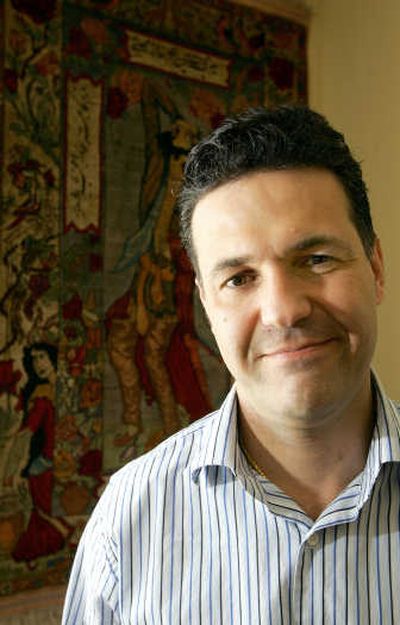Publishing business leaves many behind

Contrary to the apocalyptic prognostications of digital doomsayers, books aren’t going the way of the dinosaur quite yet.
But for would-be Hemingways hoping to make their fame and fortune on the best-seller lists, the publishing business is looking more like the world’s biggest casino: A few lucky souls hit the jackpot, and the rest are out of luck.
In February, Boston University grad student Katherine Howe became an instant millionaire when she signed a two-book deal to publish her first novel, “The Physick Book of Deliverance Dane.”
Set for publication in summer 2009, it’s sort of a higher-brow “Da Vinci Code,” a past-and-present story based on the author’s research into two ancestors who were accused in the Salem witch trials.
A seven-figure contract for a no-name writer is stunning, but in the increasingly competitive publishing industry, the race to find and sign the next Dan Brown results in plenty of big bets being laid down on unknowns.
Some pay off, some don’t. But when that offer comes, it’s like winning a lottery.
When Scottsdale, Ariz., author Sam Barone’s agent got him a $200,000, two-book deal for a historical novel titled “Dawn of Empire,” he says, “I couldn’t believe it.”
But Barone’s dream-come- true turned to disappointment when enthusiasm for his book faded during the run-up to publication in 2006.
“When my book came out, they basically threw it out there with no support, no marketing, so despite the good reviews, it never really took off,” he says.
“Sales were OK, but not worth what they paid for the book. So that was kind of a shock to me.”
Still, Barone feels like one of the lucky ones. He has two published novels, is earning decent sales overseas and, most important, has a foot in the door for his next book.
Other gambles pay off much better. Every year there are a few titles that follow up the big advances with big industry buzz, a big marketing push and, often enough, big sales.
Examples in recent years include Elizabeth Kostova’s 2005 vampire mystery “The Historian” and Khaled Hosseini’s long-running best-seller “The Kite Runner.” First published in 2003, it seemed to come out of nowhere, but in fact it was the object of competitive bidding and benefited from an aggressive marketing campaign.
Of course, publishers have long been willing to pay big bucks for potential best-sellers. But insiders say the competition for hot manuscripts has increased, in part because of the growth in auctions – in which agents put a book up for bid among multiple publishers, rather than negotiating with them one on one.
“There are a greater number of multiple submissions than there used to be,” says agent Dominick Abel, who auctioned off Barone’s book and represents well-known authors including Nevada Barr.
Of course, it’s his job to build buzz, which pays off when an auction pushes up the price on a manuscript. The downside for the author is that, if none of the publishers bids, there is nowhere left to go with the book.
It takes more than an agent’s enthusiasm to generate buzz. Publishers can’t always know what will hit, but they have a few notions about what increases their chances.
Matthew Thornton, who tracks book deals for Publishers Weekly magazine, notes that the headline-making advances more often go to nonfiction than to debut novels.
“Nonfiction is a safer bet for publishers. Fiction is more of a crapshoot,” he says.
Nonfiction often has a famous name attached (i.e., celebrity memoirs), or at least an impressive resume, says agent Abel.
“If it’s truly a first novel with nothing attached to it other than the quality of the manuscript, you’re less frequently right (unless) this author has developed a huge presence on the Internet, or it’s a British author where the book was already sold for a lot of money, or there is a movie deal attached to it,” he says.
Indeed, the latest trend in big-money deals is authors from overseas. As in any other literary niche, some of these imports will strike a chord with American readers, and some won’t.
But one thing is certain: No matter how many hyped-up debuts fall flat, agents, editors and authors will keep lining up at the literary slot machine.
“The publishers are looking for big hits,” author Barone says. “If they throw a hundred books out there and two of them hit, that’s what they want.”